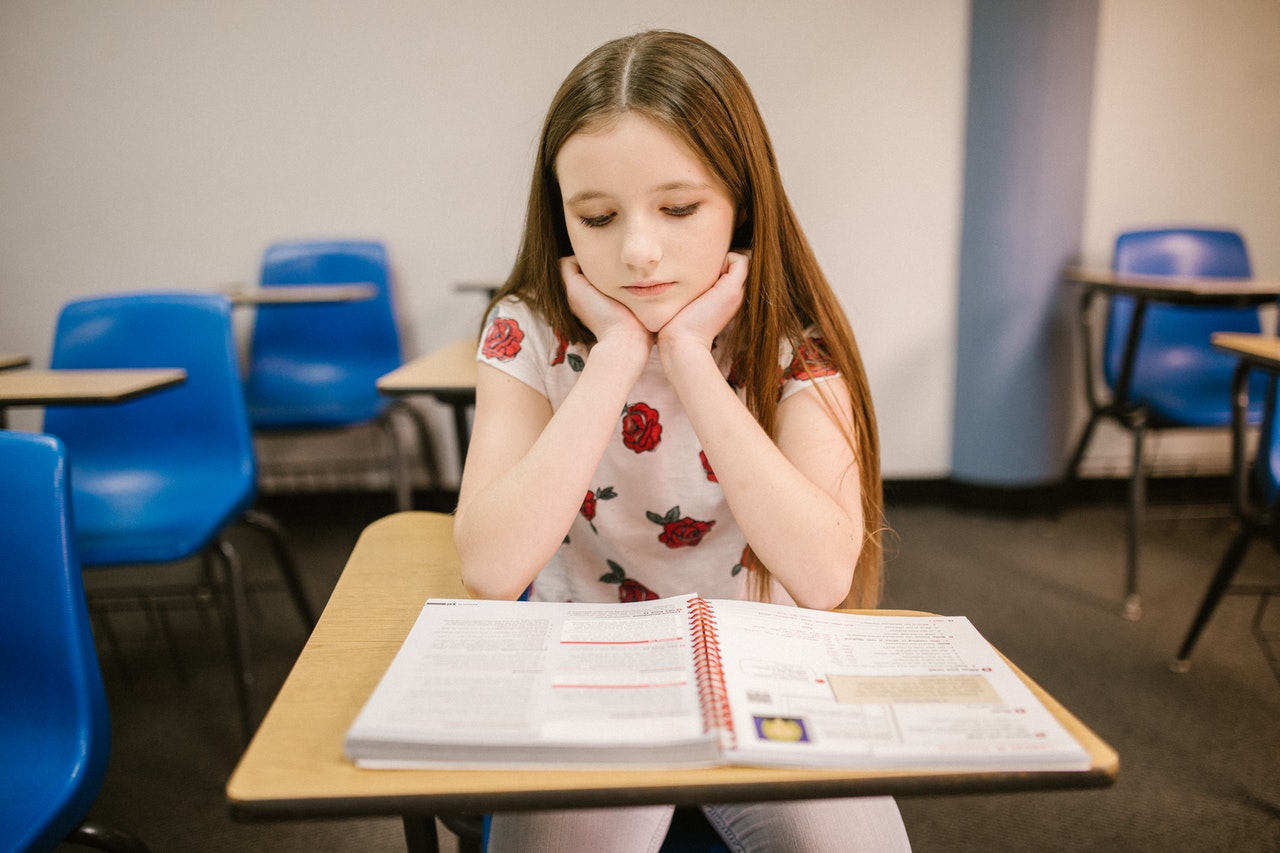Every child may have a different preferred learning style, but sometimes a student’s performance is actually based on something more. A gifted child can pose a unique challenge for parents and teachers, and it’s important to identify whether your child is gifted and craft the optimal education plan for them.
Some gifted children may do better with advanced course materials and learning plans, while others may benefit from participating in advanced programs outside the traditional classroom. Either way, understanding your child’s status as gifted and their ideal learning style is important to ensure they get the most out of their education and excel at the pace that is best for them.
Here at Beta Bow, we know a thing or two about gifted children and students who aspire to learn and do more. Let’s take a look at what being gifted even means and how you can find out if your child is gifted.
Gifted Identification Programs That Work
The issue with gifted programs based on test scores has been that the top-scoring students are more closely correlated with the higher-income students, and this also creates little ethnic diversity within the gifted pool. An improvement on gifted identification programs would be a universal screening of all children, which has proven to vastly increase the percentage of minorities referred to gifted programs.
Even better is using local norms to assess giftedness, by comparing students to others in their district or school, rather than against national or state-wide scores. It’s necessary that we find and rely on a uniform and objective methods of testing children for giftedness, rather than looking to teacher recommendations, which may be skewed by human error, their own prejudices or biases, or simply their misunderstanding of cultural differences that prevent certain gifted children from appearing so.
Identification Criteria for a Gifted Child

There are many different traits that may indicate that a child is gifted, though it isn’t always easy to make that determination unless you know what you’re looking for. Some identification criteria for a gifted child include exhibiting unusual curiosity and asking many or advanced questions, being good at solving problems, especially complex problems, and enjoying intellectual challenges.
Additionally, students who reason well and are good at understanding and adapting ideas may be gifted, as well as those who have many interests, who learn quickly and remember what they’ve learned, and those who are avid readers. Advanced communication skills and a preference to discuss topics with adults, rather than students their own age may be another indication that a child is gifted.
Related: Leadership Activities for High School Students
Working Together to Identify a Gifted Child
An IQ test may not reveal right away that your child is gifted, and while their teacher may not entirely pick up on this, a perceptive parent can observe their child’s behavior and note traits that indicate they might be gifted. Even before children get into grade school, there are a few telltale signs to look out for. Some very young gifted children will sit through the reading of a long book and then request to hear it again; some will show an early interest in the alphabet or math; some will remember complex events, and some will take the time to organize or sort things, for no reason at all.
Additionally, sometimes a student who is not highly engaged in classes or shirks their assignments is truly just bored in school and lacking the challenges necessary to motivate them. If you notice any of these traits in your child, you should be sure to explore whether they may be gifted and the available programs for them.
What Teachers Can Do
Teachers should always be on the lookout for students who demonstrate unusual or exceptional behavior or learning abilities, and often they do relay this information back to the parents. Teachers are in the unique position of having worked with hundreds or thousands of students of a similar age range, so they’re much more attuned to the behavior and traits that are common and standard among children of that age, versus those that are unusual or exceptional.
Teachers should be sure to bring up any differences they notice with a child’s parents so they can compare notes with the parents and determine if the child is in fact gifted and requires a different learning program.
What Parents Can Do
Unlike teachers, parents have the advantage of a much deeper connection with their child and are much more likely to notice the small differences and minor traits that a teacher may overlook in one child. Parents who notice gifted-resembling traits in their child should schedule an appointment to discuss with the child’s teacher.
Once the teacher knows what to look out for, they can pay close attention and determine if they agree, that the student may be gifted and whether the student would benefit from an IEP or other gifted program.
Differences in Gifted Children

Gifted children are not all alike, and while they may exhibit some traits that separate them from their non-gifted classmates, they may also be very different from the other gifted children they meet. While some tell-tale signs of gifted children include their deep focus and intensity, fixation on organization, intellectual curiosity, and interest in solving complex problems, their personality traits may vary significantly.
Some gifted children are extroverted, loud, and outgoing, while others are quiet, introverted, and introspective. Some excel academically, while others who are bored, unchallenged, and unmotivated in fact underachieve. Some are very focused in the classroom, while others are largely inattentive, which is also often due to boredom and a lack of mentally challenging exercises.
Finally, some are model students and teachers’ pets, while others act out in class. There are simply too many different traits and behaviors to assume that all gifted children act one way or another, but it’s important to reserve judgment about a student, simply because they don’t follow your idea of a traditionally gifted student; you may really be thinking of a stereotypical high-achieving student, which is not always a gifted one.
Social Struggles of Gifted Children Who Are Intense, Sensitive, or Obsessive
While having a gifted child may be great for their academic future, it’s important for parents to be aware of some of the social struggles gifted children may face. Some gifted children exhibit problematic behavior, which may be related to or even indicative of their giftedness. For example, obsessive behavior, like an obsessive and intense interest or focus on a particular subject, may be confused with Asperger’s, though it could also be a sign of giftedness.
Likewise, if a child has hypersensitivity and a chronic intolerance to tags in their clothing, this could be a sensory integration disorder, or simply another symptom related to their giftedness, as psychologists have noted that the same sensitivity that enables gifted people to extract information from the world around them could lead to hypersensitivity in other ways, both physical and emotional.
The key here is to look at the traits and then consider your child’s behavior as a whole and determine, are these simply signs of their giftedness, or are these problems we need to address.
Should Your Gifted Child Be Enrolled in a Special Program?
Just because a child is gifted, it doesn’t mean their whole academic world needs to be turned upside down. Some gifted children do just fine in a regular classroom, though they may tend to get higher grades than most of their peers or finish assignments faster. However, for some gifted students, the regular classroom is boring, demotivating, and actually a deterrent from allowing them to take advantage of their giftedness.
For those gifted students who find themselves struggling in a regular classroom, a few options should be considered: an IEP, or individualized education plan, a gifted program at the school, or possibly even homeschooling. That said, for the child’s social development, it’s often best to work to keep your student in the general population of their peers, while crafting an education plan that best suits your child’s needs.
Related: Best Ways to Encourage Youth Entrepreneurship
Conclusion
Navigating parenthood with a gifted child is always a unique experience, but the most important thing is to focus on serving your child in whatever way works best for them. If you notice differences in your child or see that their current education program isn’t serving them well, it’s time to take a look and reassess things. Additionally, finding unusual, intellectually challenging programs that also incite problem-solving, innovation, and creativity is a great way to be proactive about keeping your child engaged and making the most of their giftedness.
Programs like Beta Bowl are a great opportunity for this, as students are challenged with bringing an idea to life in the form of a business project, and the lessons and tasks are unlike the assignments they’re handed in a regular classroom. If you have a gifted student, you may want to consider a program like Beta Bowl to nurture your child’s gifted skills and give them a unique, entrepreneurial enrichment experience.







